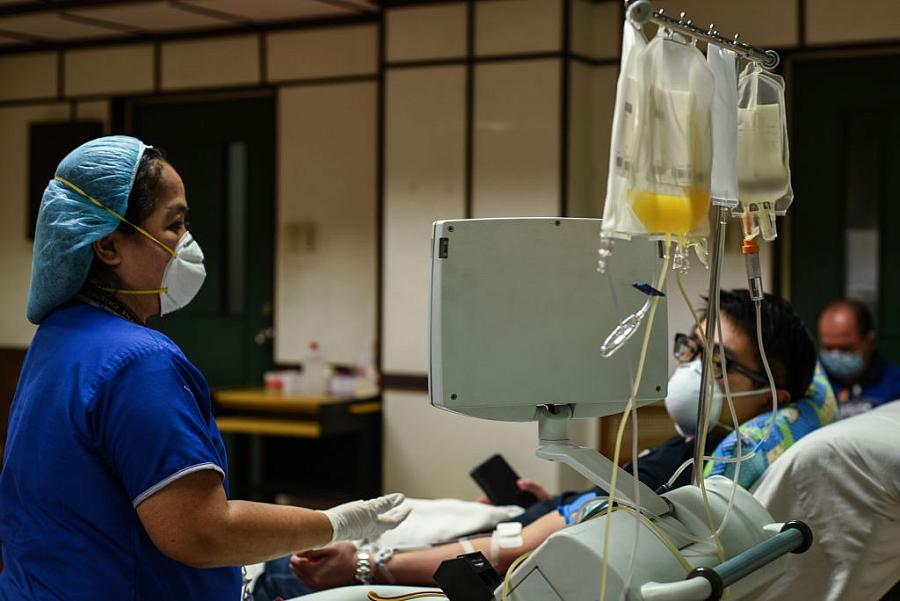Filipino Americans have been hit hard by COVID-19, but the available data masks the impact

(Photo by Maria Tan/AFP via Getty Images)
The Centers for Disease Control and Prevention in August published a report that added Asian Americans to the list of groups disproportionately affected by COVID-19. Yet even within the broader Asian American group, some subgroups such as Filipino Americans, have been more heavily impacted than others.
In California, Filipino Americans constitute about 25% of the state’s Asian population, yet they represent at least 35% of coronavirus deaths in that group, according to data compiled by the Los Angeles Times.
Several factors are linked to the impact of the pandemic on the community, including Filipino Americans’ high representation in essential industries – particularly health care. Philippine immigrants account for the largest share of the country’s 512,000 immigrant registered nurses, at 28%, according to the nonprofit Migration Policy Institute. Across the United States, they make up 4% of registered nurses, but 30% of deaths among registered nurses, according to National Nurses United.
High health disparities linked to diet and lifestyle is another factor contributing to the impact. Alexander Adia, co-founder of and researcher with the Brown University Philippine Health Initiative for Research, Service, and Training, said it’s important to dive deeper into these behaviors to examine how they’re tied to structural factors. Those employed in the medical field, for instance, are often on their feet for long periods of time, leaving them with little energy to exercise and prepare healthy meals.
A report published by the Bulosan Center for Filipino Studies at UC Davis cited a couple of other variables linked to high COVID-19 cases and death rates among Filipino Americans, including undocumented status, lack of health insurance and economic insecurity.
Yet even with what is known, an exact picture of the toll of the pandemic on the community is difficult to capture due to the way data is collected in the country. Not all counties collect data on cause of death by race. The impact of COVID-19 on Filipino Americans has also been masked because data on Asian American subgroups is often lumped into an aggregate category . This, in turn, makes it challenging to develop tailored interventions that could minimize the impact.
This project for the 2020 Data Fellowship will explore the structural conditions and socioeconomic factors that have resulted in higher health disparities among Filipino Americans, which contribute to their increased death risk of COVID-19. And I’ll look at what can be done to address these issues. The project will examine the role of colonization plays in these conditions and factors, and it will illustrate how aggregate data and the model minority myth is harmful to the community.
It will focus on Filipino Americans in Los Angeles County.
To illuminate the issues the community faces as accurately as possible, I plan to collaborate with various groups that serve the Filipino Americans to gain a better understanding of the community's representation in essential industries, barriers in accessing information and care, what concerns community members have about the pandemic and what efforts are underway to address health disparities.
Because of the lack of data on how Filipino Americans have been affected by COVID-19, my hope at the conclusion of this fellowship is that this project can become as a resource for those seeking ways to address the health disparities and barriers Filipino Americans face. I hope it will show that the community is in need of resources, despite the fact that aggregate data paints a different picture.

